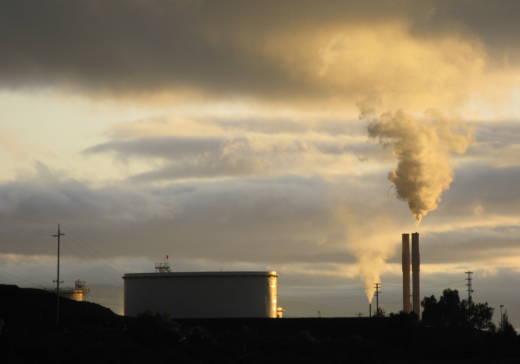Proposition 70 is about money raised by California’s cap-and-trade program to control climate emissions. Under that program, industries buy permits at a state auction allowing them to emit carbon dioxide and other greenhouse gases that contribute to global warming.
Prop 70 changes who gets a say in spending the money from those auctions.
UPDATE: Prop 70 went down to defeat on Election Day with more than 63 percent of voters casting “No” votes (92 percent of precincts reporting, statewide as of June 6).
What You Need to Know About Proposition 70
• Creates a new temporary “reserve” fund to collect revenue from the sale of cap-and-trade permits, starting in 2024.
• Requires a one-time, two-thirds vote of the legislature to release money from the special reserve.
• If the two-thirds “supermajority” isn’t achieved, the funds remain locked up until it is.
• An unrelated provision temporarily suspends a sales tax exemption for certain manufacturing equipment, until the reserve funds are released.
